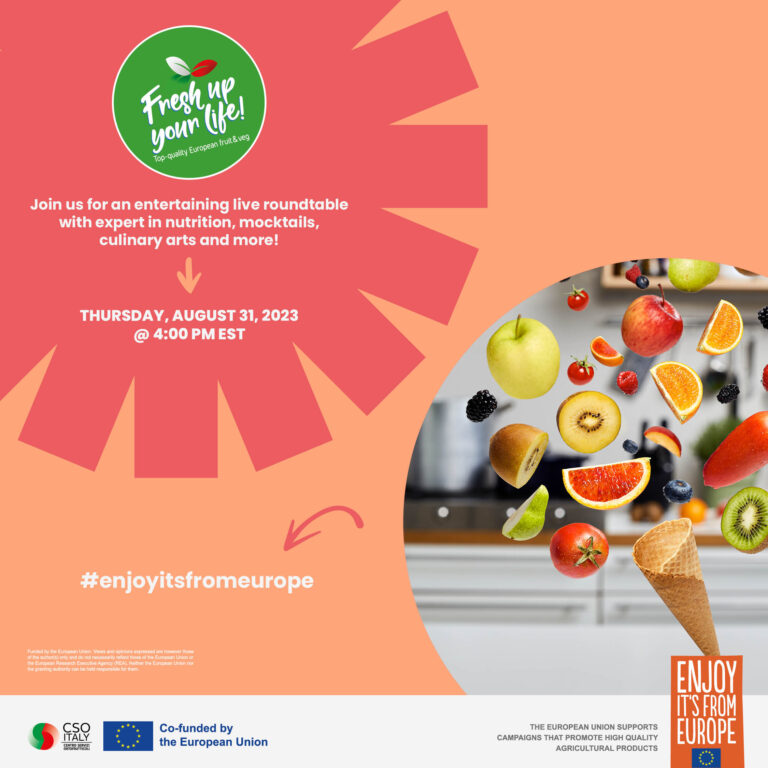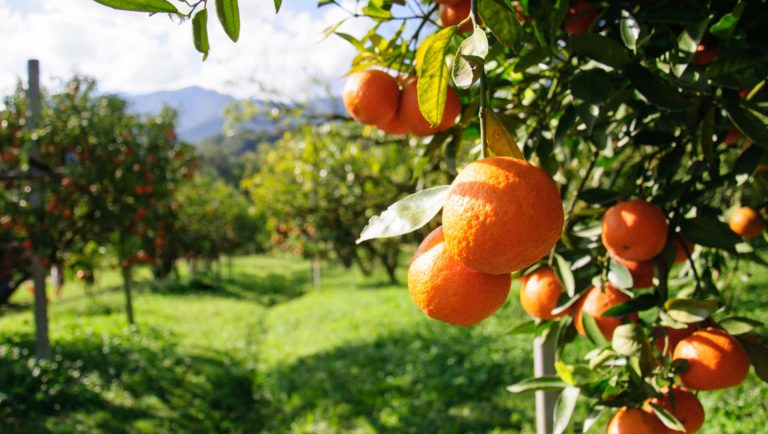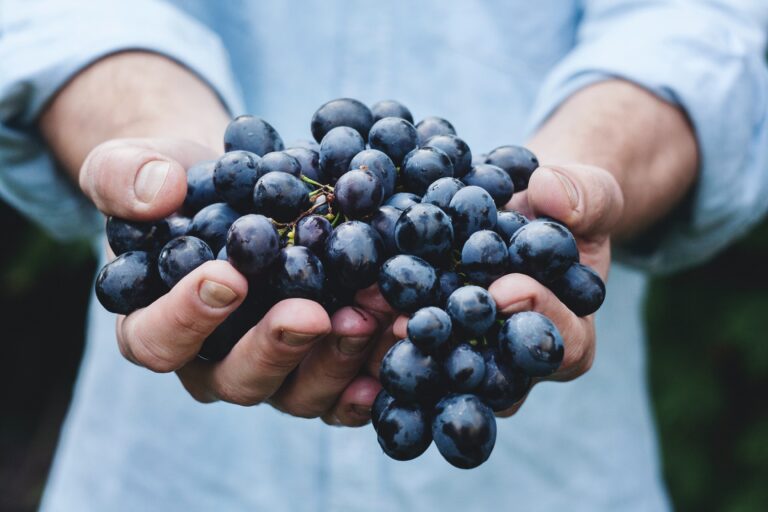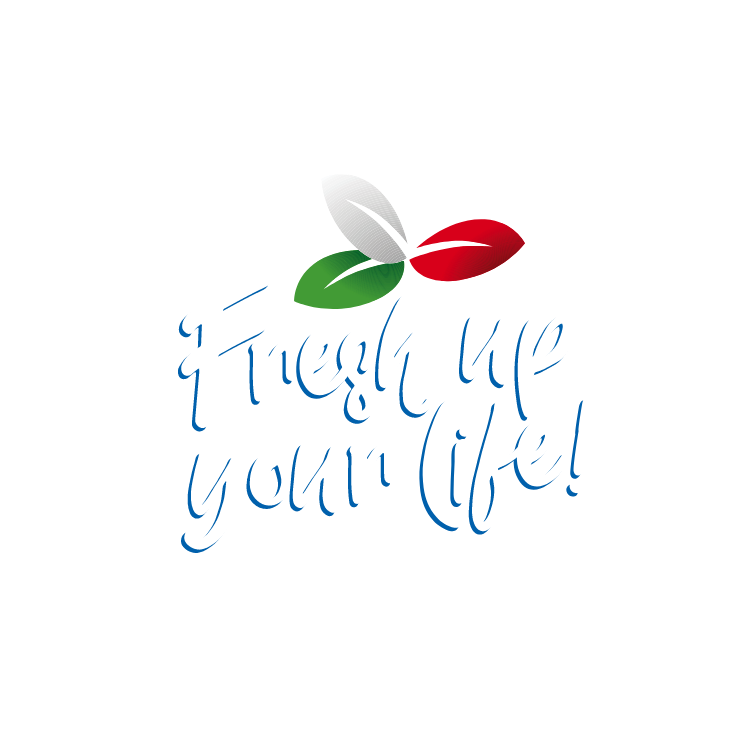The “Fresh Up your life!” campaign by CSO Italy supports the UAE in promoting the culture of
fresh fruit and vegetables across the country
Dubai, 20 th January 2023 – The growing millennial population is driving food trends and services in the UAE.
Not only do they want healthy ingredients but they also look for price convenience. This younger
generation is more open to trying new cuisines and prefers the convenience of online platforms for
shopping and ordering food. Furthermore, the increase in the number of working and single women living
in the UAE is driving the expansion of dining-out options and of food home delivery services through e-
commerce platforms (Source: Canadian Government, 2021).
Consumers in the UAE have begun to include more fresh fruits and vegetables in their diet. The
government's commitment to address the alarming rates of obesity, diabetes and cardiovascular diseases
among the population and the recent pandemic, have changed the local consumption scenarios
“Fresh up your Life! – top quality European fruit and veg” is the project developed by CSO Italy and funded
by the European Union, to promote the culture of fresh fruit and vegetables in the United Arab Emirates
and and to raise awareness of what it means to produce and consume in a genuine. The following Italian
companies also participate in the programme: Apofruit Italia, Cico-Mazzoni, Conserve Italia, Lagnasco
Group, Oranfrizer, Origine, Unacoa.
European fruit and vegetables are synonymous with safety and wholesomeness, values guaranteed by
strict production regulations; they are renowned and appreciated all over the world for their excellent
quality, as well as for their unique flavour. Thanks to the incredibly varied climatic and environmental
conditions, in the European Union it is possible to cultivate products of inimitable quality and taste. Italy,
thanks to the many sunny days and a unique biodiversity, is the European biggest producer of fruit and
vegetables together with Spain.
Kiwi – Italy is the second largest producer and exporter of kiwis in the world. The kiwi grown in the
Mediterranean, especially in Italy, thanks to its superior quality and taste have been gaining the
appreciation of consumers from all over the world since 1950s and are today among the first in the world.
The most interesting aspect of the kiwi is represented by its nutritional components. Vitamin C is not simply
the most abundant of vitamins, but represents the quantitatively most important substance of this fruit.
Among the other nutrients of the kiwi there are vitamins K, E, folate and minerals such as potassium,
phosphorus and calcium. From an energy point of view, kiwi contains about 60 calories per 100 grams, so in
addition to the advantage of having a moderate glycaemic index, it also has a low-calorie content. At the
moment, the Italian kiwi is in season!
Apples – Italy occupies the fifth place in the world for the production of apples with over 2 million tons
produced per year. Apple is a concentrate of antioxidants, it is rich in fibre, useful for keeping cholesterol
and blood sugar under control. The taste of the apple is defined by the balance between sugars, acids and
mineral salts it contains. The degree of ripeness enhances the ideal conditions for consumption, also
characterizing the consistency and juiciness of the fruit. The distinctive characteristics of the flavour of the
different apple varieties are linked to the aromatic substances they release.
Pears – Italy is the first major producer of this fruit in Europe. Their harvest period runs from July to
September and differs according to the variety. Pear is rich in nutrients and goes well with different
ingredients, which is why it is perfect to use in the kitchen for various sweet and savoury recipes. Pear’s
delicacy, freshness and lightness make it suitable for everyone, and an excellent fruit for children during
their growth phase. Pear is highly digestible and can be consumed without problems by diabetics and
pregnant women, thanks to its good sugars and high folic acid content.
Orange – It is the most widespread citrus fruit in the world and undoubtedly the most squeezed one, the
breakfast star and an incredibly versatile ingredient in the kitchen. Italy has always played a fundamental
role in the production of oranges, favoured by the mild climate, the landscape and the nature of the land,
often very suitable for cultivation, due to the presence of the sea. Few calories (40 Kcal per 100 grams), for
great goodness, these are the fundamental ingredients of the success of oranges. Orange is composed of
90% water, to which fructose and mineral salts are then added; it has many vitamins (C, B and P), citric acid
and fibre. Blood oranges contain calcium, phosphorus, potassium, iron and selenium. Sicily is the homeland
of blood orange, a juicy fruit with an intense flavour that grow during the whole winter season. Equipped
with a double vitamin load compared to normal oranges, blood oranges remain among the tastiest and
most sought after.
Orange juice – The colour of orange juice comes from anthocyanins, widely present in the peel of the fruit;
the amount of red pigment in the fruit depends on where it was grown and when it was harvested. The
juice product uses only the best fruit to produce 750ml of certified juice; each pack of juice consumes an
average of 1.8 kg of PGI Sicilian blood oranges. This is why it is a true elixir for well-being!
Processed tomatoes and derivatives – The tomato is one of the many symbols of Italy, it contributed to
making Italian cuisine famous and immortal all over the world. The influence of tomatoes on Italian cuisine
is in fact indisputable: they bring versatility, intense and deep colours and enrich many dishes with flavour.
No product has defined Italian cuisine more than the tomato! Today Italy is a leader in the production of
tomato preserves and processed tomatoes and the tomato preserves sector is one of the excellences of the
Italian food industry. It is one of the most important Italian chain of processed fruit and vegetables both in
terms of turnover and in terms of quantities produced. The best known and most widely distributed
tomato derivatives are pulp, peeled tomatoes, preserves, concentrates, chunks, as well as all sauces and
gravies made up of at least 50% derivatives. In Italy important canning companies, leaders in their
respective market sectors, process enormous quantities of product following processing methods and using
technologies developed over time.







